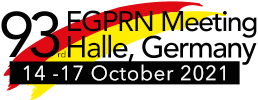A study of burnout and associated factors in Irish GPs and GP trainees during the COVID-19 Pandemic
Darragh Mc Kenna, Mala Raghoonath, Imoleayo Abioye, Leila Abdoul-Rahman, Claire Collins
Keywords: Exhaustion, Disengagement, Burnout, OLBI, Oldenburg Burnout Inventory, Wellbeing, COVID-19, Pandemic, Irish, Ireland, Europe, European, General Practice, Primary Care, GP, Trainee, Training
Background:
Prior to the COVID-19 pandemic burnout among Irish GPs was estimated at 6.6% using the Maslach Burnout Inventory. Associated factors were male gender, younger age and early career status. During the COVID-19 pandemic burnout frequency was reported as high as 76% in medical residents in Romania and doctors in Northern Italy. In the US burnout was seen in 46.3% of physician trainees exposed to the virus at work while in China burnout was noted in 13% of frontline healthcare staff.
Research questions:
The aim of this study is to measure burnout and associated factors in Irish GPs and GP Registrars during the COVID-19 pandemic.
Method:
A cross-sectional study using an online questionnaire, comprising of the 16-item Oldenburg Burnout Inventory (OLBI) and a 24-item novel demographic and wellbeing questionnaire that was designed to assess demographic, personal, practice and health system related factors that may be associated with burnout. Data collection was conducted from January to April 2021. Data were analysed using SPSS v27.
Results:
A total of 153 of the 172 responses received were suitable to calculate burnout inventories. OLBI subtotal scores for disengagement and exhaustion were high in 9.8% and 12.7% respectively. The total OLBI score was high in 12.1% respondents. High OLBI scores were most strongly associated (p<0.01) with less downtime, less sleep, less family time and a fear of colleagues being off work with COVID-19. Female gender was associated with higher total OLBI scores.
Conclusions:
High OLBI total scores were associated with several factors. Most notable were the effects of the pandemic on practitioner wellbeing outside of work. Fear of the effects of colleagues being off work with COVID-19 was also associated with higher burnout scores. Further evaluation is required to investigate the nature of the relationship between these factors and burnout.
Points for discussion:
Both health system related and societal factors contributed to a greater burnout score in GPs and GP trainees working during the peak of the COVID-19 pandemic.
Demographic factors associated with burnout in the Irish experience prior to the pandemic appear to no longer be significantly associated with higher burnout scores during the pandemic.

